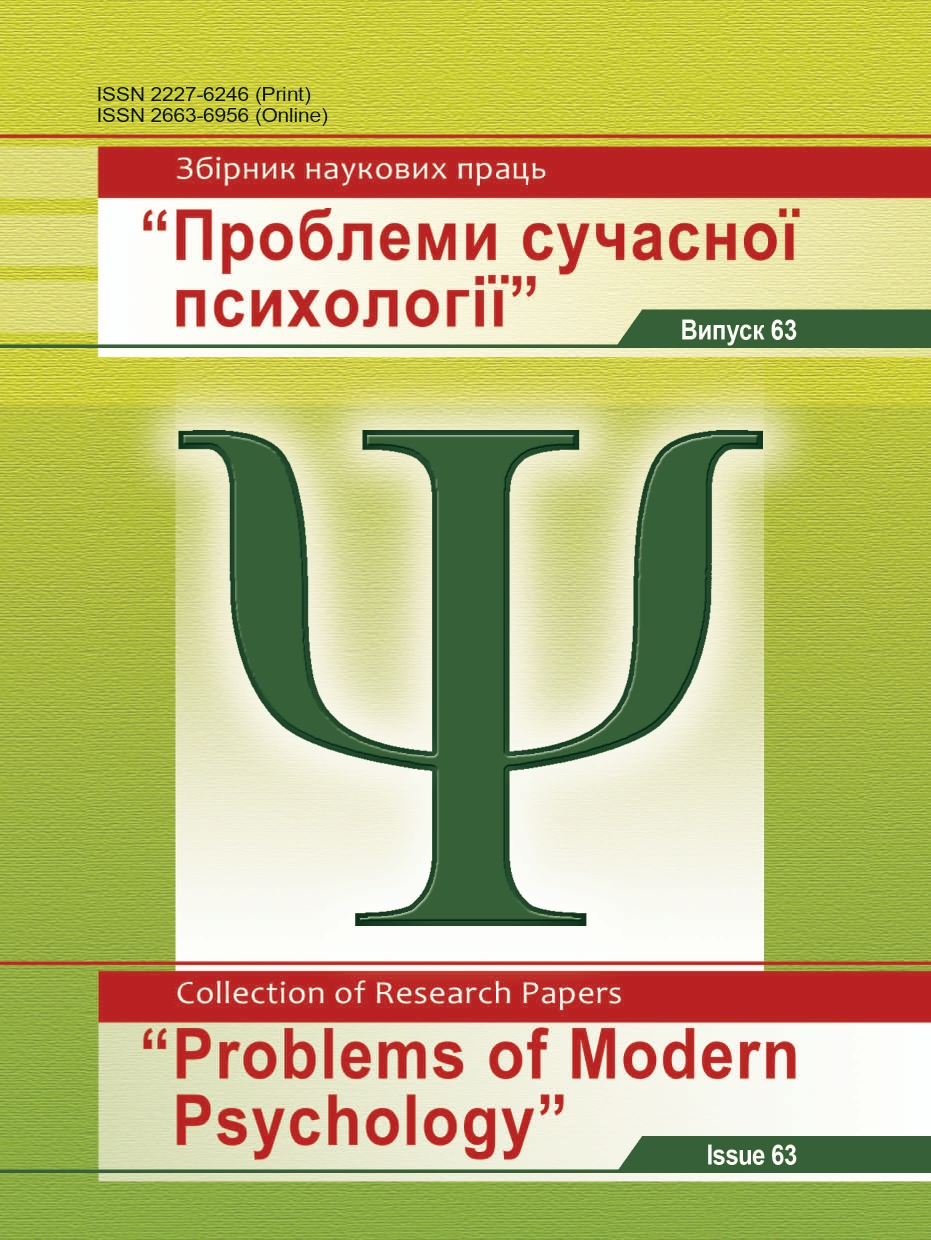The Psychology of Adaptive and Maladaptive Relationships between Parents and Children of Senior School Age
DOI:
https://doi.org/10.32626/2227-6246.2024-63.159-180Keywords:
adaptive relationships, maladaptive relationships, the typology of a modern family, parental attitude profile, socio-economic factors of family life, destructive aggressiveness, abnormal aggressivenessAbstract
The purpose of this article is: to study the concept of “child-parents adaptive relationships”; to describe The Humanistic Conception of child-parents adaptive relations; to present The Psychoanalytic Model of family adaptive education, The Transactional and The Behaviorist Models of Personality Adaptive Education; to describe the results of the experiment with the aim to explain that a person’s implementation of the feature of aggressiveness in destructive maladaptive behavior.
Methods of the research. The following theoretical methods of the research were used to solve the tasks formulated in the article: a categorical method, structural and functional methods, the methods of the analysis, systematization, modeling, generalization. The pilot research was used as an empirical method.
The results of the research. We proved, that socio-economic factors of family life (a quality of life, a status of a family, living conditions, monetary income, social status, a level of education of parents) does not have a direct impact on the manifestations of aggression of children, however, its pronounced disadvantage can motivate parents’ aggression towards children, causing the aggression as a response.
Conclusions. We proved, that in the typology of a modern family, the main factors associated with manifestations of destructive aggressiveness of children are the influences of the socially disadvantaged microenvironment of the family, which predetermine its manifestations, and the profiles of parental attitudes in it, which determine its manifestations. The influence of the socio-economic characteristics of the family, its structure, composition and number, problems, associated with the health of its members, the culture of their communication, are of great importance in the manifestations of abnormal aggressiveness of children, but to a greater extent these manifestations are mediated by purely psychological family functioning parameters, also parental attitude profile.
Downloads
Published
How to Cite
Issue
Section
License
Copyright (c) 2024 Liashenko Larysa

This work is licensed under a Creative Commons Attribution-NonCommercial 4.0 International License.
Copyright
The Editorial Board has the full right to publish original scientific papers containing results of theoretical and experimental research works which are not currently subject to review for publication in other scientific editions. The Author shall transfer to the editorial board of the Collection the right to spread the electronic version of the paper, as well as the electronic version of the paper translated into English (for papers originally submitted in Ukrainian and Russian) by all kinds of electronic means (placement at the official website of the Collection, electronic databases, repositories etc).
The Author of an article reserves the right to use materials of the paper, without approval with the editorial board and the founders of this Collection: a) partially or fully, for educational purposes; b) for writing own dissertation papers; c) for preparation of abstracts, conference reports and presentations.
The Author of an article can place electronic copies of the paper (including the final electronic version downloaded from the official website of the Collection) at:
- personal web resources of all Authors (websites, webpages, blogs etc.);
- web resources of the institutions where the Authors are employed (including electronic institutional repositories);
- non-profit public access web resources (for example, arXiv.org).
But in all cases, it is obligatory to have a bibliographic reference to the paper, or a hyperlink to its electronic copy placed at the official website of this Collection.






